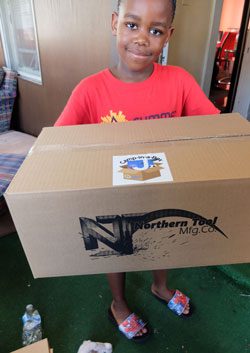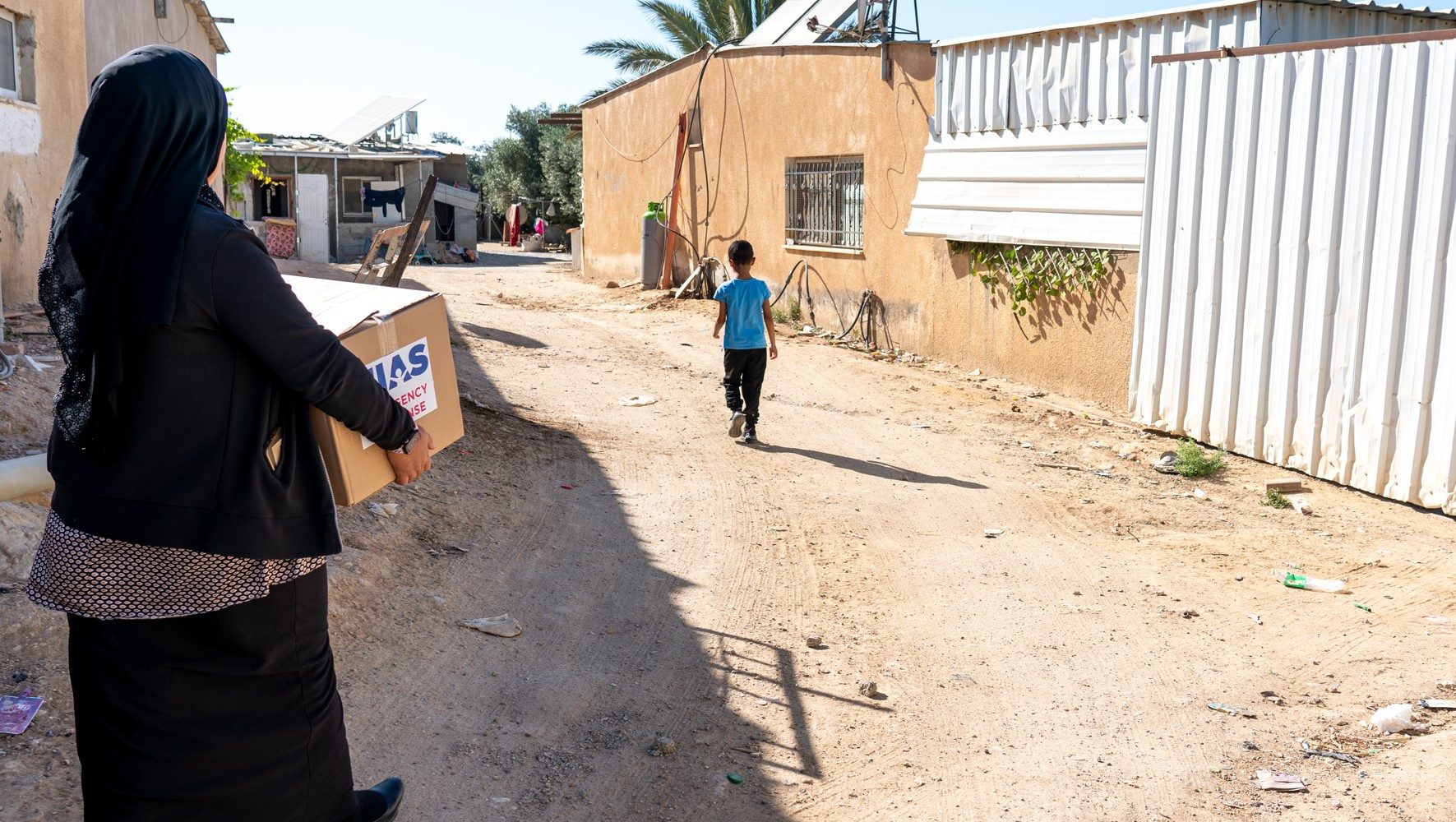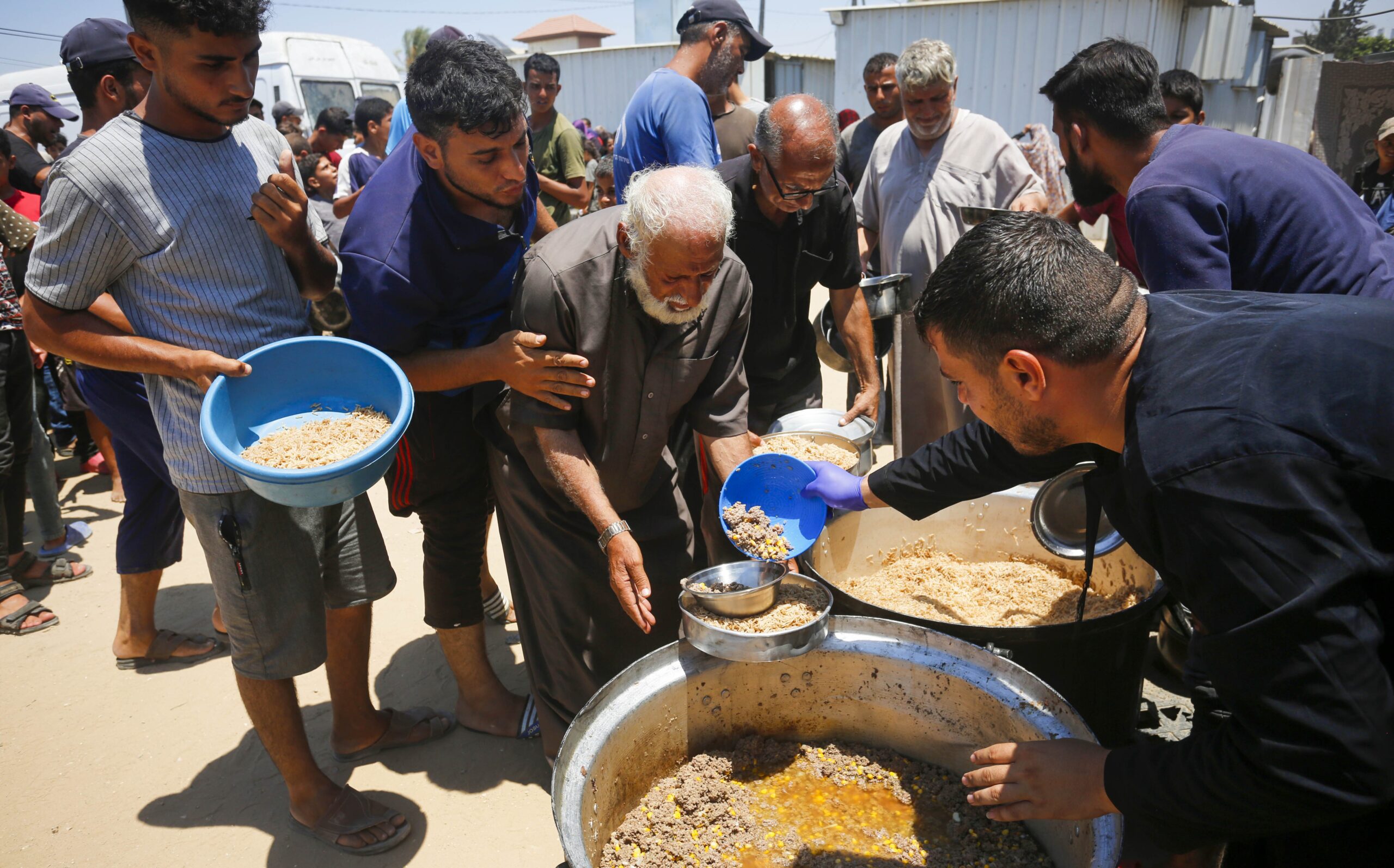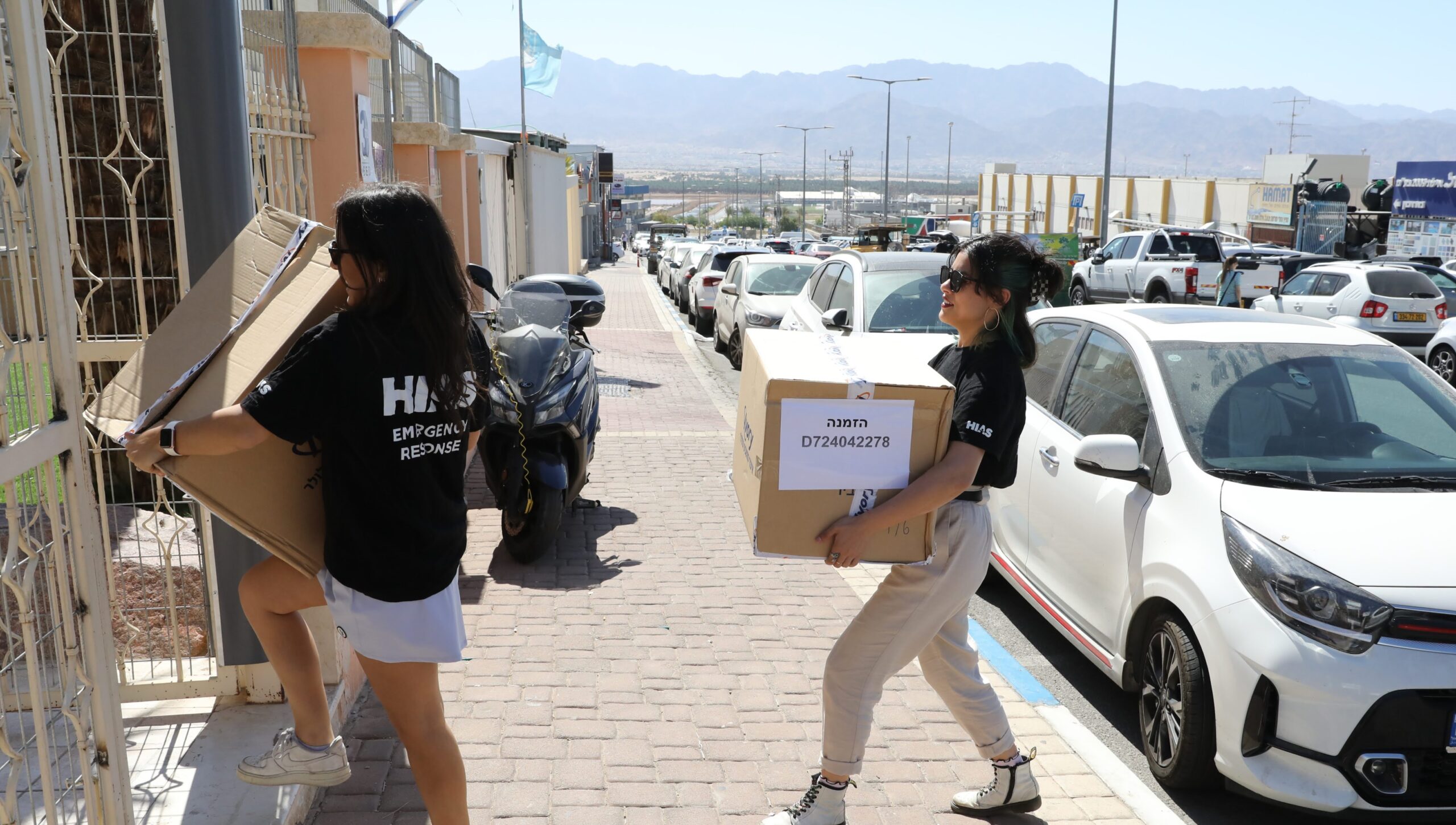
This year, summer felt like it was canceled. All across the United States, camps closed, activities shut down, and parents scrambled to figure out what to do with their children for two months.
Among them were the parents of refugee children in western Massachusetts. The Jewish Community Center in Springfield, had partnered with Jewish Family Services of Western Massachusetts, or JFS, to send the kids to the JCC’s summer camp. But like so many other summer programs, the camp was canceled because of the COVID-19 pandemic. And as the pandemic disrupted plans left and right, JFS tried to think up a way to help refugee families deal with the unscheduled time and loss of social interaction.
After the cancellation, JFS Resettlement Director Sara Bedford was talking with the JCC’s camp director. “We were saying how we wish we could box up camp and send it home, and lots of other ideas,” Bedford said. “Later that day I said, ‘Remember when we talked about sending camp home? Let’s do that.’”
With funding from a foundation and private donors, JFS, which is one of HIAS’ local partners, put together 150 boxes for refugee families with dozens of activities in them — one for each day — for 5-12 year-olds. The first box was sent out in July and the second box goes out this week. The activities range from a gardening activity with soil and seeds to art projects, STEM projects, and scavenger hunts. The second box contains, among other things, a soccer ball for which Bedford anticipates “full enthusiasm.”
“People are anxious about next year and a box of ideas right now is a bright spot in a tough summer,” Bedford said.
HIAS’ partnership helped Bedford adapt the boxes for refugees. Some activities needed to be adapted for lower-income households or families without a yard, for example, and some of the language had to be easier to understand, with more pictures and color-coordinated instructions. Bedford hired a contractor to redesign the camp guide, which was also translated into Nepali and Swahili.
For some families with greater needs, HIAS’ partnership also allowed Bedford to take things even further. Weekly Zoom parties with mostly Congolese families have allowed translators to explain activities and why they are valuable. Some families haven’t been in the U.S. for even a year, so they have bigger barriers, with parents having less advanced English skills.
The camp-in-a-box and family programming ideas are now being shared among HIAS affiliates across the country.
Feedback from families has been positive so far. Kids are eargerly doing the activities and parents are happy for the ideas and the English-language practice built into the activities. In the “build an animal habitat” activity, for example, a crossword puzzle about animals was included along with pipe cleaners and other art supplies.
The big question is what comes next. Schools will start up in varying ways but after-school programs are not likely to take place, leaving families with many unstructured hours to fill. Plans are still in development, but Bedford and the local JCC are teaming up to figure out what they can do for their virtual campers during the school years.
“The need is not going away,” she said.



